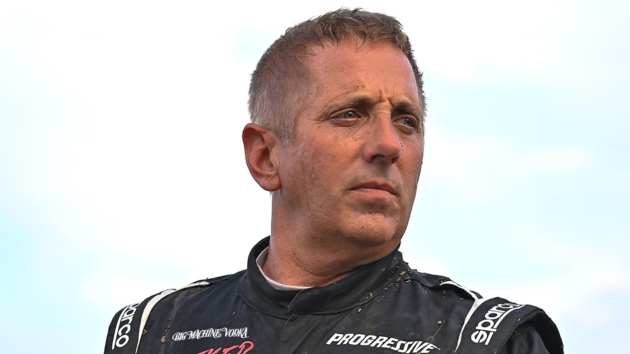Teachers want the public to know their job is difficult, new survey finds
Written by ABC Audio ALL RIGHTS RESERVED on April 4, 2024
(NEW YORK) — As schools across the United States continue to rebound from pandemic interruptions, more than half of teachers still say their profession is a difficult job and public education is in decline, according to newly released Pew Research Center data.
Pew conducted two surveys last fall, one of 2,531 public K-12 teachers and a second survey of 5,029 U.S. adults, the findings of which were published Thursday. Pew also published a data essay titled “What Public K-12 Teachers Want Americans To Know About Teaching.”
Of the teachers surveyed, 51% said they want the public to know teaching is a difficult job and that teachers work hard.
“We know that they’ve [teachers] been facing a lot of challenges from, you know, COVID learning loss, from all of these political issues that we’ve been hearing about, so that’s our drive in conducting this survey,” Luona Lin, lead author of the K-12 teachers report, told ABC News.
Of the teachers surveyed, 54% said in five years the American education system will be worse than it is now, and 51% of adults surveyed said public education is going in the wrong direction, according to Pew.
The survey of teachers also found that about four in five teachers (82%) believe the overall state of public education has gotten worse compared to five years ago.
Pew released findings from the K-12 survey in February that focused on the ongoing scrutiny placed on classroom curricula, mainly regarding race and LGBTQ identities.
The data out Thursday comes as education staffing shortages persist across the country, with 70% of teachers who participated in the latest survey saying their schools are understaffed, according to Pew’s report.
In its survey, more than three-quarters of teachers said the job was often stressful, according to Pew.
New York City special education teacher Traci Tucker told ABC News that special ed vacancies have made the job “overwhelming,” but she said she doesn’t want her students to “fall through the cracks.”
“It’s been extremely hard to find licensed, qualified, certified staff to fill those vacancies,” Tucker said. “Making sure that their [the students’] needs are met is both mentally and physically taxing.”
Difficulties include work-life balance, compensation and students
More than 80% of teachers are at least somewhat satisfied with their jobs, according to Pew’s K-12 teachers survey, but the survey found there are still challenges.
Teachers find it difficult to balance work with their personal life 53% of the time, according to the Pew report, with 84% of those surveyed saying they didn’t have enough time to do regular school tasks — such as grading, lesson planning and other paperwork — throughout the day. Four in five teachers said it’s just too much work, Pew found.
“Time is always an issue and it has gotten worse” since the pandemic, Minnesota social studies teacher Rich Rosivach told ABC News. “It’s all-consuming. It’s all the time.”
Despite yearly step increases and federal initiatives to raise teacher salaries, half of teachers are not satisfied with their pay, according to the survey.
Nearly three-quarters of the American adults surveyed by Pew also believe teachers should be paid more.
At least 91% of teachers said their students have anxiety and depression, experience poverty or are chronically absent, the survey found. Virtually all teachers see these issues daily, according to Pew’s survey and interviews conducted by ABC News.
“Anxiety is very high and a variety of other student mental health issues,” Rosivach said, adding: “Where you might in the past have had 30 to 35 students, you might have had one or two students [with these issues] — now you’ll have four or five. And for some of them, it’s debilitating and it causes them to not be able to come to class.”
Education experts and researchers said chronic absenteeism, defined by federal data as a child missing at least 10% of the school year, existed before COVID. Now, it has been exacerbated, making it harder for instructors to teach consistently, according to FutureEd Policy Director Liz Cohen. Teachers build on material in order for students to accumulate knowledge in the way they need, Cohen told ABC News. If students rarely show up, Cohen said, there is no foundation to build on.
“It’s like trying to play Jenga with all the foundational pieces missing,” she said. “That tower is going to fall.”
Pew also found that other top problems for teachers remain: Students are still disinterested and being disrespectful at school — something educators who have spoken with ABC News have also consistently said.
Optimism in public education is down
Overall optimism in public education is down across the board, according to the Pew surveys and ABC News’ interviews.
Teachers believe the political climate — like challenges to school curricula — is a major factor, as well as the impact of the pandemic. But nearly 70% of adults say not enough emphasis in schools is being placed on teaching core academic subjects, according to the survey. Another major reason, according to the survey of adults, is that teachers have brought their personal political views into the classroom.
As for the future, more than half of teachers lack confidence in the recruitment of the next generation, with 52% saying they wouldn’t recommend their profession to a young person, according to Pew’s data.
“I worry very much about my younger colleagues — people who are entering the profession,” Rosivach said. “I think that we’re in a situation where we’re not creating opportunities for people to enter this profession, to do it in a way that is sustainable or is going to be really building strong institutions.”
Most of the teachers surveyed have been in the profession for more than a decade, according to Pew, like Tucker of New York and Rosivach of Minnesota. However, Lin with Pew said their survey found that newer teachers showed more positivity than their peers.
“Newer teachers, you know, those who have been in the profession for under six years, are more likely to recommend a person starting out today to become a teacher than teachers with longer tenure,” she said.
Tucker said she is less concerned with the future of public education, but said she does worry that technology could outpace the current school structure.
“I think that things need to happen faster in public education as far as integrating technology and equipping teachers with the skills that they need so that they can prepare students,” Tucker said.
Rosivach said he is worried, too. Before anything else, he said he hopes to save students who are struggling the most.
“Add more mental health services for young people … because I think it leads to other things, it leads to chronic absenteeism, it leads to higher rates of depression, it leads to less completion of school,” he said. “A lot of the things that we need to get to are going to be about finding kids help with their mental health.”
Copyright © 2024, ABC Audio. All rights reserved.







